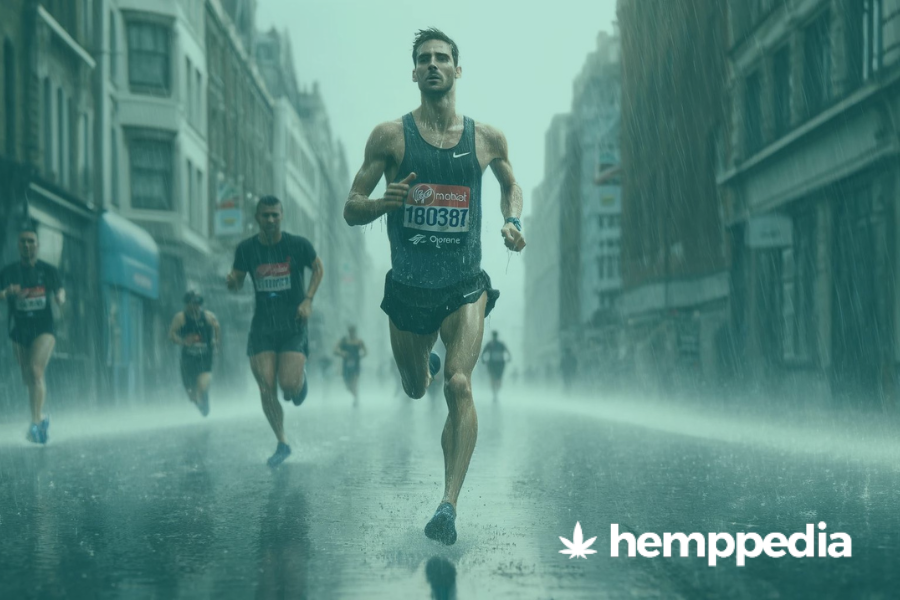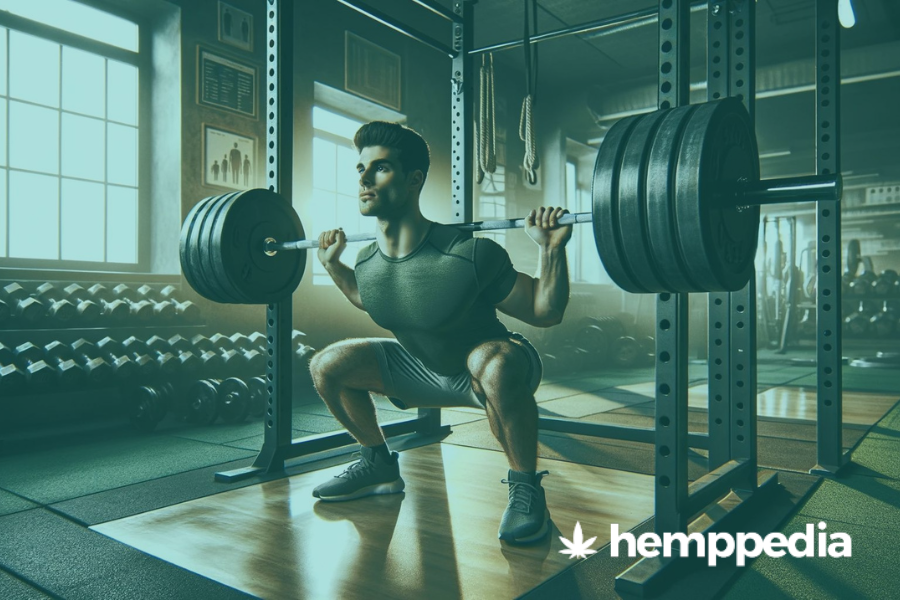What is Athletics
The sports governing body, World Athletics, defines athletics in six disciplines which are track and field, road running, race walking, cross country running, mountain running, and trail running.
This is to say, Athletics is predominantly an individual sport and athletes are professionals involved in any of the above sporting events.
A study1 quotes that the term “athlete” comes from the Greek root ‘athlos” which means achievement and performing exceedingly well. In general, athletes represent a very ‘inhomogeneous group’ in several aspects, including morphological, physiological, psychological, and clinical terms.
Having said that athletes undergo the pressure to perform exceptionally well, engage in a strenuous exercise routine, which demands a meticulous daily nutritional requirement.
Nutrition for Athletes
Athletes regularly engage in strenuous exercise and training therefore they should be aware of their daily nutritional needs. Maintaining a healthy diet is fundamental to support intense training, provide adequate energy as well as to optimize immune system functions, strength, and aid faster recovery from injuries.
According to a report2 on Nutrition for athletes, it states that meeting daily nutritional requirements is essential for effective body functions. Lower energy levels could lead to loss of strength and endurance as the body tends to use up fat and body tissue. Certainly, sports nutrition enhances athletic performance by decreasing fatigue and the risk of disease and injury.
Sports Nutrition
Studies3 recommended intake of a well-balanced diet for athletes which is made up of Macro Nutrients including carbohydrates, proteins, and fats, Micro Nutrients including Calcium, Vitamins, and Iron, Fluid intake, effective meal planning during pre and post-competition as well as pre and post-training. Along with this comes the recovery foods.
Since most athletes are cautious about their food intake, they maintain optimal health. Hence they often draw attention from the public and media as they are considered to be role models and an icon for great health. Little do we think about the various physical and emotional pain that these professionals undergo.
CBD in Sports Nutrition
The global sports nutrition market was valued at 50.84 billion U.S. dollars in 2018 and is expected to increase in value to 81.5 billion U.S. dollars by 2023.
In the same vein, the execution of the 2018 U.S. Farm Bill federally legalizing hemp-derived CBD products, markets began to be overwhelmed with several CBD based products.
According to a 2019 report4presented for the International society for sports Nutrition, CBD products are marketed for pain relief, and improving sleep and target sport and exercise nutrition market. The report puts forth that “there is zero actual scientific direct evidence to support the products and claims in the intended population at this time”. Thereby inviting more studies to prove the efficacy and safety of the applicability of CBD to sports nutrition.
The report concludes that:
- CBD benefits recovery rate both emotionally and physically, reduction of pain, inflammation, anxiety, and enhances sleep.
- More studies on CBD with and without THC is still needed to determine if any true sports nutrition applications exist.
- It also advises customers to make informed decisions based on science and not to get influenced by hype marketing.
CBD for Athletic performance
There has been a lot of debate surrounding athletes and the use of performance-enhancing drugs (PED) because some iconic images of the industry during the late ’80s were tested positive for having used steroids and performance-enhancing drugs to climb up to victorious positions.
For example, Ben Jhonson, the Canadian sprinter was disqualified after his race for Summer Olympics in Seoul, Marion Lois Jones a Belizean-American former world champion track and field athlete and a former professional basketball player who was stripped of her medals for use of steroids.
These are just two names, out of the tall list of professional athletes who used drugs to enhance their performances.
This report aims to compare and compile the available research on this topic of CBD and athletes to understand at what point and why athletes use CBD?
Firstly, to steer clear with the skepticism around Cannabis, let us understand that it has never been categorized under performance-enhancing drugs.
Moreover, according to WADA ( World Anti Doping Agency) published a list of prohibited substances in 2018, which clearly states that, ‘Cannabidiol is no longer prohibited. Synthetic Cannabinoid is not a cannabimimetic; however, cannabidiol extracted from cannabis plants may also contain varying concentrations of THC, which remains a prohibited substance’.
In the same vein, according to a 2019 study5 on Cannabis use in active athletes: Behaviors related to subjective effects, it reports that Cannabis use has not been well characterized in athletes, probably because prevailing studies have primarily examined it only from the perspective of problematic use. It also points out the knowledge gap that exists in terms of patterns of use, reasons for use, and responses to cannabis consumption, thereby throwing open the wider scope of conducting further studies.
Some key findings of the 2019 study6were:
- Athletes who used a combination of THC and CBD derived benefits in maintaining well-being and calm.
- Adult athletes used cannabis responsibly and primarily for medical conditions such as pain and anxiety.
- Out of a cross-sectional survey conducted in 1161 athletes, 61% indicated they used cannabis for pain.
- CBD has been used for its anti-inflammatory properties and lack of psychogenic effects
- CBD used in combination with THC provides greater analgesic and anti-anxiolytic relief than CBD alone.
Therefore the study concluded that there was no evidence for cannabis use as a performance-enhancing drug and that cannabis may play a role in pain management and concussion-related symptoms.
There is quite a lot of studies and research that documents the physical pain and conditions that athletes undergo. However, there is comparatively less research on the mental health and psychological well being of athletes.
A 2016 systematic review study7 on the mental health of elite athletes reports that they are vulnerable to a range of mental health problems that include anxiety, depression, and substance misuse.
Added to this, physical injury, overtraining, burnout, lack of rest and sleep, and chronic pain that leads to a deficit in their well being and overall performance. Subsequently, athletes might be at an increased risk of developing BP due to the high volume of training and its effect on the musculoskeletal system.
Conclusion
To sum up, considering the value of CBD to athletic professionals, nothing is alarming about CBD as it is ‘not associated with abuse potential’. This statement comes from the World Health Organization 2018 report.
Some brief points from the report that could add value in this context are:
- CBD has been found to have relatively low toxicity, although other potential effects are yet to be explored.
- Effects on the immune system are unclear; there is evidence of immune suppression at higher concentrations, but immune stimulation may occur at lower concentrations.
- CBD does not produce the effects that are typically seen with cannabinoids such as THC.
Know more about the different types of pain, the Endometriosis of pain, and the experiences of CBD users on how they had relief from chronic pain.
To know more about the adoption of CBD in recovering from high-risk sports injuries, read the article on the use of CBD in high-risk sports.
References
- Araújo, C.G.S., and Scharhag, J., 2016. Athlete: a working definition for medical and health sciences research. Scandinavian Journal of Medicine & Science in Sports, 26(1), pp.4-7 [↩]
- Thomas, D. & Burke, Louise & Erdman, Kelly 2016 Nutrition and Athletic Performance. medicine and science. 48. 543-568. 10.1249/MSS.0000000000000852 [↩]
- Purcell, Laura K, and Canadian Paediatric Society, Paediatric Sports and Exercise Medicine Section. “Sport nutrition for young athletes.” Paediatrics & child health vol. 18,4 (2013): 200-5. doi:10.1093/pch/18.4.200 [↩]
- Kalman, Douglas & Hewlings, Susan. (2019). Cannabinoids and sports nutrition -is product marketing ahead of the science?. 10.13140/RG.2.2.17788.80007 [↩]
- Zeiger, Joanna S et al. “Cannabis use in active athletes: Behaviors related to subjective effects.” PloS one vol. 14,6 e0218998. 28 Jun. 2019, doi:10.1371/journal.pone.0218998 [↩]
- Zeiger, Joanna S et al. “Cannabis use in active athletes: Behaviors related to subjective effects.” PloS one vol. 14,6 e0218998. 28 Jun. 2019, doi:10.1371/journal.pone.0218998 [↩]
- Rice, S.M., Purcell, R., De Silva, S. et al. The Mental Health of Elite Athletes: A Narrative Systematic Review. Sports Med 46, 1333–1353 (2016). https://doi.org/10.1007/s40279-016-0492-2 [↩]


